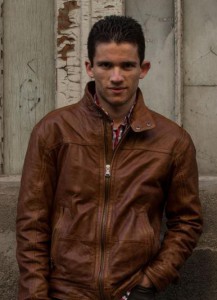Have you ever been afraid that the world might end within a moment for no particular reason whatsoever? Have you ever been suspicious that if you read just the right line coined from the right poet with the right intensity and pitch of your voice, you can accidentally cause Earth’s fiery destruction? I hope so.
Because, you see, a world which can be shattered to pieces merely by the emotional buildup of a poem is the same world which another poem can reassemble on the very next day. It is a world preserved by its own power of self-expression, because it is a world which lives twice simultaneously. But today self-expression just as our ozone layer is endangered instead of supported by human technology. We seem to be concerned only with the “self-” part completely forgetting about the “expression” itself. What we often ignore is that self-expression is not merely to play music or to write verse or to paint, it is to a much higher degree listening, reading, absorbing, being curious and autodidactic, collaborating and experimenting. It is so easy these days to meet a British “poet” who has never heard of Ted Hughes or Philip Larkin or a German one who never found time to discover Hans Magnus Enzensberger or Gottfried Benn. It seems to me that contemporary communication made us feel more self-centred and self-absorbed than ever instead of widening our horizons for the work of others around us.
“Today literature and art are exposed to another danger. They are not endangered by ideology or a political party, but by an economic process without face, without soul and without direction. Its censure is not ideological. It has no ideas. It knows everything about prices and nothing about virtues.” – Octavio Paz, ‘Poetry and the Free Market’
I don’t miss the glorious days when T.S. Elliot and W.H. Auden were regarded as living demigods or when New York Times used to publish poetry on its pages, I don’t even miss the times when the governing elite of Ancient Ellada and Rome was abundant with true worshippers of poetry. Dreaming about this would have been sentimental and because of that – bad poetry. What I’d really like to see today is rage against the machine, rebellion against the dissolution of individuality in favour of mediocrity, dissatisfaction with the mass production and fabrication of music, literature and cinema. I am afraid that we will soon be able to create a machine indistinguishable from man not because Alan Turing said so but simply because we have turned ourselves into one of his definitions – by straightening up and abstracting all the curves and wiggles life has, by not admitting that reason and logic are not as fundamental to the human’s nature as the primordial power of metaphor and rhythm.
“I fought the law and the law won.” – The Clash
Day by day, I recognise more easily the patterns of the monstrous mechanisation and standartization that our society is going through. I see more and more people refusing to accept the fact that we don’t have mythology anymore, that we live in a world where mysteries are sentenced to death for being “one hundred percent truth and two hundred percent fiction”. The problem of poetry is that it is an incompetent businessman trying to capitalize on a highly distinctive and challenging product which no one is able to mass produce and standartize. A product that doesn’t impose on you any kind of cheap tricks and promises. Its packaging doesn’t try to flatter you, to reassure you or to convince you, it doesn’t bring you any short-term appeasement with yourself. Instead it very often wants you to “gaze into the abyss” and to realize that “the abyss gazes back into you”.
“Poetry is everywhere except in the poems of weak poets.” – Paul Claudel
Last but not least, poetry can be studied, but not taught. I find it really amusing that some people still believe that they can standartize poetry by creating a mechanical algorithm for creativeness. I am of course speaking of the fashionable creative writing courses. These are ridiculous because to try to study how to write poetry is like trying to study how to laugh at jokes. You don’t. It’s not funny. It’s an anti-joke and anti-poetry. If you devise an algorithm for how people should be creative, they won’t be creative anymore. Creativeness is always mysterious and unknown and that is why we appreciate geniuses. We simply don’t have a clue how do they do what they do. The day we understand that process will be the day when we are going to stop praising them for being creative.
But what is one way to write poetry? When mediocre musicians from the Austrian aristocracy asked Mozart how does he write music, he simply answered, “I bring together sounds which love each other.” As simple as a little night music. You see, footballers don’t write dissertations on how to play football. They come together and play. In the same way, a good poet plays football with a ball which nobody else can touch. The brilliant poet does the same with a ball which nobody else can see. I warned you. It is a strange love.
About the author:
 Bogomil (20) participated in our workshop in Sofia, Bulgaria, in 2012. He currently studies Computer Science at the University of Southampton in England.
Bogomil (20) participated in our workshop in Sofia, Bulgaria, in 2012. He currently studies Computer Science at the University of Southampton in England.
